Stakeholder Dialogue 2022: The Z Holdings Group's Path to 2030 Carbon Neutral and Contribution to a Decarbonized Society
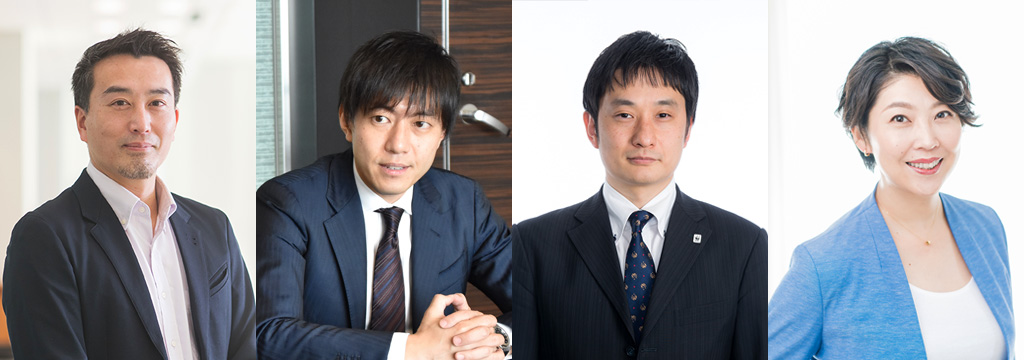
In the face of an intensifying climate crisis, the international community is shifting efforts towards decarbonization to limit the average global temperature increases to 1.5 °C above pre-industrial levels. Some companies have declared to become carbon neutral, i.e., to reduce their greenhouse gas (GHG) emissions to net-zero, and have embarked on initiatives to reach this goal ahead of the Japanese government's 2050 target. In February 2022, Z Holdings Corporation (ZHD), a holding company of Yahoo Japan Corporation (Yahoo Japan), LINE Corporation (LINE), ASKUL Corporation (ASKUL), and ZOZO, Inc. (ZOZO), declared its commitment to achieve carbon neutrality throughout the whole Group by 2030. We invited experts on climate change to discuss the Z Holdings Group's decarbonization strategy.
*The dialogue took place online in January 2022. The titles and departments of employees referred to in this article are as of January 2022.
PROFILES
-

- Kenji Fuma(CEO, Neural Inc.)
- Kenji Fuma is the CEO of Neural Inc. As a strategy and financial consultant well-versed in the field of management strategy for environmental and social issues and in finance, he serves as an outside director, consultant, and advisor of leading listed companies, financial institutions, and startups. He is the editor-in-chief of the online news website "Sustainable Japan" and is also an ESG expert member on panels of the Ministry of Environment, the Ministry of Agriculture, Forestry, and Fisheries, and the Ministry of Health, Labour and Welfare. Kenji Fuma frequently appears in, contributes articles to, and receives interviews by media, including NHK, the Nikkei, President, Forbes, CNN, and the Washington Post, and has been invited to lecture more than 200 times. He graduated from the College of Arts and Sciences (major in international relations), The University of Tokyo, and holds a Master of Liberal Arts in Sustainability from Harvard University, and an MBA in Global Management from Thunderbird School of Global Management. He is the author of "ESG Shiko" (ESG Thinking), "Cho-Nyumon Kabon Nyutoraru" (Carbon Neutral Beginner's Guide), and "Deta de Wakaru 2030-Nen Chikyu no Sugata" (Understanding with Data How the Earth Will Be in 2030).
-

- Naoyuki Yamagishi(Director, Climate & Energy and Oceans & Fisheries Division, WWF Japan)
- Naoyuki Yamagishi first became interested in international politics on climate change when COP 3 (third meeting of the Conference of the Parties to the United Nations Framework Convention on Climate Change) took place in Kyoto in 1997, during his first year in the College of International Relations at Ritsumeikan University. After graduating in March 2001, he enrolled in a master's program in international relations and environmental policy at Boston University in September 2001, and acquired a master's degree in May 2003. Since then, he has been involved in policy recommendations and campaign activities as an officer in charge of climate change at WWF Japan, and has also engaged in international recommendation activities. He also participates in the United Nations Climate Change Conference every year and is the Director of the Climate and Oceans Division, WWF Japan, since 2020.
-

- Akimasa Kominami(ESG Promotion Office, GCFO, Z Holdings Corporation; CSR Manager, CSR Promotion Office, Social Responsibility Promotion Group, Yahoo Japan Corporation)
- Akimasa Kominami joined Yahoo Japan Corporation in 2004 and worked on communication services including Yahoo! JAPAN Mail and Yahoo! JAPAN Messenger, and subsequently on smartphone services including Kakao Talk and Y!mobile. Since assuming the current post in April 2017, he works in environmental affairs at Yahoo Japan Corporation, and is in charge of promoting the overall ESG activities at the Z Holdings Group.
-

- Yuka Kowada(Vice Executive Officer, Corporate Communication, Corporate Unit, ASKUL Corporation)
- After joining ASKUL Corporation in 2007 and working in legal affairs and information security in the Legal & Security Units, Yuka Kowada was appointed head of the PR department, Corporate Unit in 2016, and manager in charge of PR and IR in 2018. In March 2020 Yuka Kowada assumed the current corporate communication post, following the company's reorganization which placed CSR and PR/IR together under an overarching sustainability division.
-
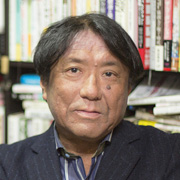
- Facilitator: Setsu Mori(CEO, Alterna Co., Ltd.; Chief Editor of Alterna Magazine)
- After graduating from the Tokyo University of Foreign Studies with a major in Spanish language, Setsu Mori joined Nikkei Inc., where he started his career in the Economics and Distribution Department then was the Los Angeles Bureau Chief from 1998 to 2001. In September 2006, he established Alterna Co., Ltd. His books include "Mirai ni Erabareru Kaisha - CSR kara Hajimaru Sosharu Burandingu" (Companies Chosen by the Future) (Gakugei Shuppansha, 2015) and "Burando no DNA" (DNA of Brands) (Nikkei Business, co-authored with Hotaka Katahira, former professor at The University of Tokyo, 2005) among others.
Reducing GHG emissions to net-zero throughout the Z Holdings Group by 2030
――The Science Based Targets initiative (SBTi) is calling for more vigorous corporate action, raising SBT (science-based GHG reduction target(*1)) levels to 1.5°C, consistent with the Paris Agreement targets, and developing a Corporate Net-Zero Standard. Meanwhile, ZHD recently announced its Group-wide GHG emissions reduction targets. Could you elaborate on this?
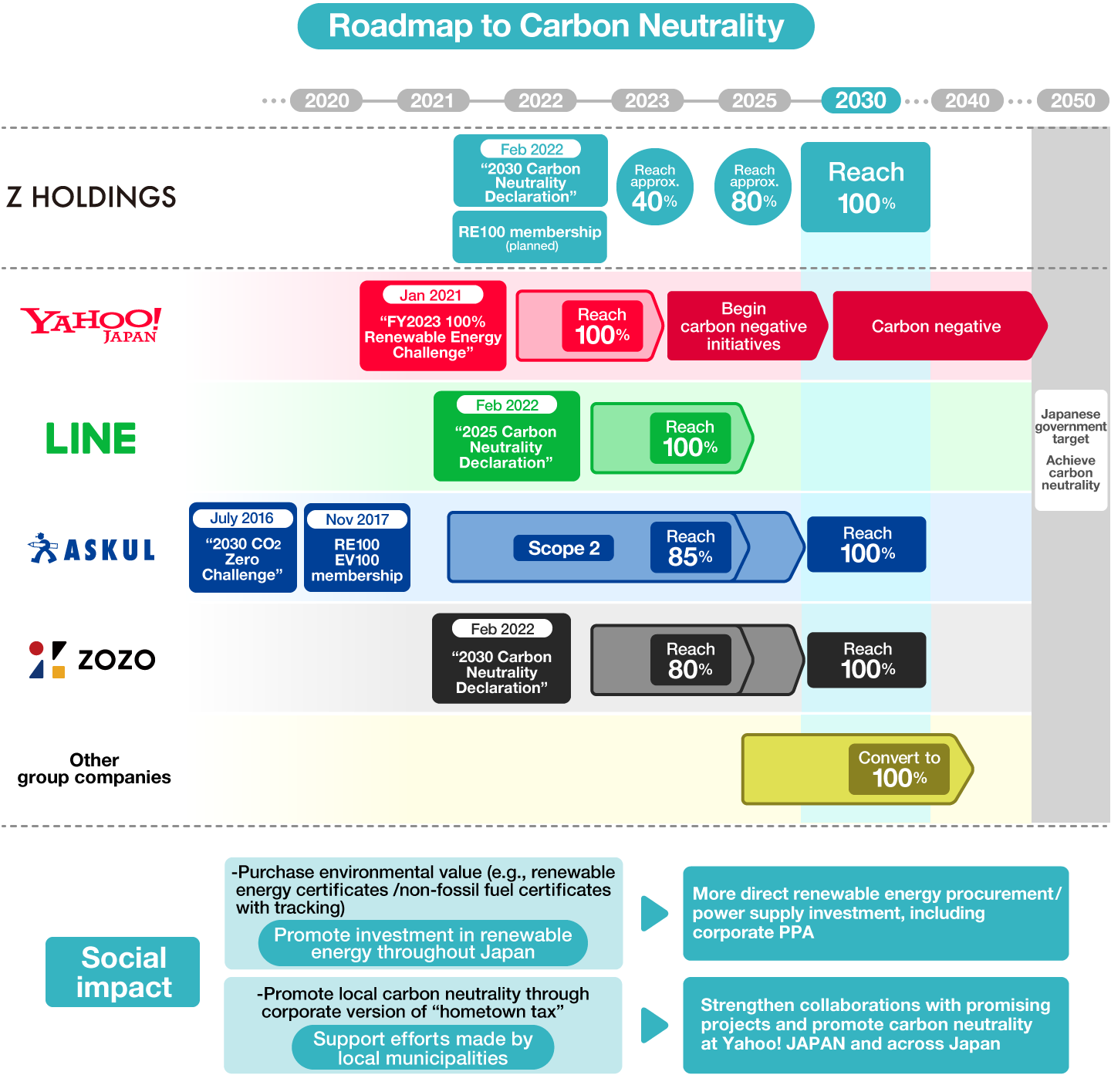
[Figure 1]The Z Holdings Group's roadmap to carbon neutrality
Kominami: In February 2022, ZHD announced its commitment to reduce GHG (greenhouse gas) emissions throughout the Group to net-zero by 2030 in its "2030 Carbon Neutrality Declaration." Ahead of this, Yahoo Japan had declared its "FY2023 100% Renewable Energy Challenge" in January 2021, and ASKUL its "2030 CO2 Zero Challenge" in July 2016. Following the business integration with LINE in March 2021, we decided to set targets afresh for the new ZHD.
Since there are around 130 companies in the Group, achieving carbon neutrality in all of the companies is by no means an easy task. We therefore aim to realize a state of carbon neutrality for the entire Group by 2030, through carbon negative(*2)efforts led by companies that have reached neutrality faster than others, e.g., Yahoo Japan, which will support the reduction efforts of other Group companies.
The word "Social Impact" in our roadmap to carbon neutrality (Figure 1) signifies that we aim to play a part in Japan's nationwide path to carbon neutrality, while Yahoo Japan contributes to the procurement of renewable energy by utilizing Corporate PPA(*3), etc., and offsetting with credits.
Promoting renewable energy investments across Japan
――How do you evaluate the newly announced roadmap? Could we first hear from Yamagishi-san from WWF Japan?
Yamagishi: While the world is aiming to achieve net-zero GHG emissions by 2050, ZHD has presented a far more ambitious vision in which the entire Group reaches carbon neutrality by 2030, and Yahoo Japan becomes carbon negative. As an environmental NGO, we regard this positively.
Within the Group, ASKUL made a slightly earlier start and has its 1.5 °C targets validated by SBTi, as well as its commitment to net-zero emissions. Yahoo Japan also committed to SBTs in 2021.
I very much hope that ZHD too, will aim for SBT validation. Although of course that is not the ultimate goal, it is still important to show clear targets aligned with the SBTs. ZOZO's carbon neutrality declaration is ambitious, but given the substantial amounts of emissions in the apparel industry, I am interested in how far the company will be able to address Scope 3(*4)emissions.
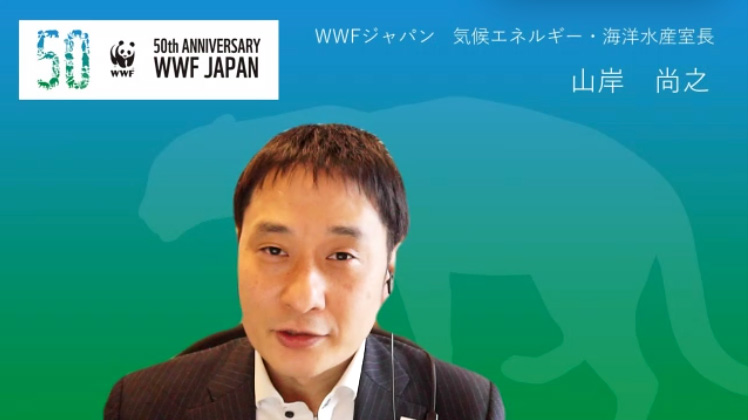
Naoyuki Yamagishi (Director, Climate & Energy and Oceans & Fisheries Division, WWF Japan)
Kominami: With regard to SBTs, we hope to develop medium- to long-term reduction plans for ZHD and make a commitment as early as possible. We are aiming to join RE100(*5)in FY2022 and commit ourselves to SBTs by FY2023. We are targeting "2030 carbon neutrality" in Scopes 1 and 2, as announced in our recent declaration, but in parallel, we must also start working on reduction targets in Scope 3, which will include the reduction of CO2emissions from e-commerce delivery activities.
Yamagishi: Another notable point is that ZHD has announced that it will promote renewable energy investments across Japan. From the standpoint of an environmental NGO, a declaration with the whole of Japan in mind, is very welcome.
The global net-zero target is probably unlikely to be met by individual corporate efforts alone, and the society as a whole must also work on reduction. Companies may require a new system in the society, or face problems such as not being able to afford renewable energy. It is our hope that companies will voice such needs and concerns without hesitation.
――Even if carbon negativity is met, carbon trading will not be possible if there is no market in Japan. I think that approaches from the industry or likeminded corporations will become increasingly important in the future.
Kominami: I agree. A renewable energy certificate market(*6)was launched in November 2021, but it is important that the market is in a state that enables effective utilization of the environmental values for both the seller and buyer. I believe that approaching relevant ministries and agencies on system design and other matters will become important activities in the future.
Social impact that only IT companies can create
――How would you evaluate the declaration, Fuma-san?
Fuma: At the moment, renewable energy can be procured relatively easily, but Japan is likely to face a shortage of capacities in the near future. It is therefore necessary for corporations to develop capacities of their own, for example, as in the form of Corporate PPA.
In general, IT companies emit less GHGs compared to manufacturers, so when considering climate change policies, there is a tendency for the companies to assume that their influence is minor.
However, times have changed and pursuing carbon neutrality has become a norm for us all. IT is fundamentally a sector in which the consumption of electricity is expected to increase significantly in the future. An increasing number of companies are therefore aiming to achieve carbon neutrality earlier, including Amazon, which has declared carbon neutrality by 2040. Above all, how companies create positive impact through their businesses will be questioned more and more.
In that sense, IT companies, with their social influence large, are perhaps well positioned to have greater positive influence on the society, compared to the manufacturing sector. Whether you act or not will make a significant difference on community, and I feel that the time has come for IT companies to think about the kind of influence they can have.

Kenji Fuma (CEO, Neural Inc.)
――ASKUL has been addressing climate change early, ahead of other companies in the Z Holdings Group. What are your thoughts on the roadmap, Kowada-san?
Kowada: I think it is very important to make declarations proactively in order to deliver impact to the world. ASKUL declared its "2030 CO2Zero Challenge" in 2016 and joined RE100 and EV100(*7)in 2017. We received great external responses, including from our business partners.
I will explain ASKUL's transition to electric vehicles (EV) later, but showing our direction opened up dialogues with people from automotive companies. I learned from this experience that if you want to move the world forward, it is essential to communicate and act, even if things may seem impossible. I fully support ZHD's move to set ambitious goals.
Realizing decarbonization while expanding businesses
――How is ZHD specifically addressing climate change?
Kominami: ZHD's mission is "Unleashing the infinite potential of all people, with the power of information technology," and as such, we want to solve social issues with the power of information technology. If we look closely at the breakdown of our emissions, as you might expect, electricity accounts for 95% of the total GHGs emitted. Data centers account for a significant part of our electricity consumption.
In order to reduce GHG emissions, we must start by switching electricity used in our data centers to electricity derived from renewable energy sources. To this end, Yahoo Japan aims to sequentially switch to renewable energy sources, starting from FY2022, and to complete the shift to 100% renewable energy sources by the end of FY2023 (end of March 2024).
When we look at the Z Holdings Group as a whole, delivery in e-commerce businesses such as ASKUL and ZOZO produce substantial amounts of emissions. If we also take into account the emissions of Scope 3, there are items purchased for our various businesses, as well as the electricity consumed by employees working remotely. We recognize we must be careful about the fact that even though GHGs derived from office electricity use may seem reduced on the surface, the total amount may not have decreased.
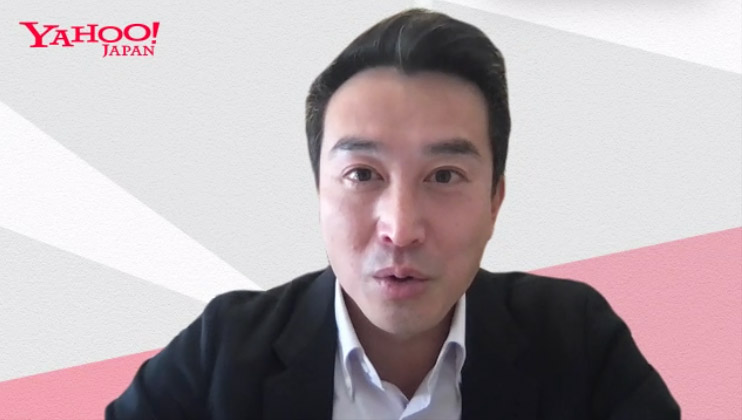
Akimasa Kominami (ESG Promotion Office, GCFO, Z Holdings Corporation; CSR Manager, CSR Promotion Office, Social Responsibility Promotion Group, Yahoo Japan Corporation)
――What are the strategies of ASKUL, Kowada-san?
Kowada: ASKUL began introducing renewable energy in 2016 and has been promoting this to align with the environmental value standards set by RE100. Since we are renting real estate properties, we negotiate with the lenders on a property-by-property basis. In some cases, we reach an agreement with the lenders very quickly, while with others it is more difficult. As of December 2021, our renewable energy rate reached 57%.
――Yamagishi-san, do you have any opinions or suggestions regarding these efforts by ZHD?
Yamagishi: ZHD has announced its intention to expand businesses as Japan's platform operator, and I assume that the number of companies joining the Group will continue to grow. What is the Group's prospect of achieving the shift to 100% renewable energy in 2023 while expanding its businesses?
Kominami: In our business plans, a series of expansions of wings and floors of our data centers are scheduled to take place. We will continuously promote the shift to renewable energy for electricity consumed in our two major data centers in Kitakyushu and Shirakawa, so the clean state of no GHG emissions will be maintained even when we have more servers and use more electricity.
However, as pointed out, when our businesses in areas of service such as e-commerce expand, issues related to delivery and other new problems will arise. There are always possibilities of M&As, and we will need to put climate change measures on the merger negotiation table, agree on the directions, and figure out ways to recover swiftly even if we temporarily do not align with our 100% renewable energy targets.
Tackling the challenges of Scope 3
――Do you have any points of concern regarding ZHD's response to climate change, Fuma-san?
Fuma: I am concerned about the challenge of Scope 3. The SBTi's Net-zero Standard rightly includes Scope 3.
Yahoo Japan, ASKUL, and ZOZO handle a lot of products, and there are also services like Demae-can which delivers food. Scope 3 will be tens of times heavier in terms of scale compared to Scope 2.
Carbon offsetting is one option, but SBTi's Net-Zero Standard does not validate targets dominated by offsets. You need to start reducing the amount of Scope 3 emissions substantially.
To do so, it will be necessary to cooperate with partners and to build new systems. There will be a lot to do. I have high expectations that ZHD will be able to build such systems with speed.
――How does ASKUL approach Scope 3 and intra-group cooperation?
Kowada: There are many challenges. With regard to Scope 3, how to gain the understanding of our partners is a challenge, as well as building a framework so that our customers understand and still choose our services. Even if we establish a lineup of environmentally friendly products, it would be a failure for us as a business entity if our services do not meet our customers' needs.
I think it is exceedingly difficult for one company alone to achieve all this. As a retailer, it is also a challenge determining how much we can ask to our business partners.
ZOZO may have similar issues, and I would like to explore the possibilities of us cooperating in areas like building databases and visualizing emissions. I hope that ASKUL can become a driver of such collaborations within the Z Holdings Group.

Yuka Kowada (Vice Executive Officer, Corporate Communication Corporate Unit, ASKUL Corporation)
Improving efficiency of the society through IT and contributing to decarbonization
――As discussed earlier, there are high expectations that, not only ZHD, but also the whole society makes decarbonization efforts. Could we hear your thoughts on this, Kominami-san?
Kominami: As a way of creating major social impact, Yahoo Japan is focusing its efforts on the Regional Carbon Neutrality Promotion Project.
We make an open call for local development projects by local governments which promote carbon neutrality, and we support these initiatives by making donations through the enterprise hometown tax donation program(*8). In FY2021, a total of approximately JPY270 million were donated to 10 local governments.
In Owase City, Mie Prefecture, Yahoo Japan supports forest building activities in a city-owned 91-hectare forest, which not only fixes and absorbs CO2, but also serves as a place for educational activities. In Miyagi prefecture, we are working to develop coastal disaster prevention forests and seaweed beds.
When we select these projects to support, we do not only look at carbon absorption. The projects are assessed from various angles, for example, their potential for providing educational opportunities, or leading to biodiversity. We hope to strengthen such collaborations that result in greater impact, by establishing best practices, applying them in wider fields, and getting involved.
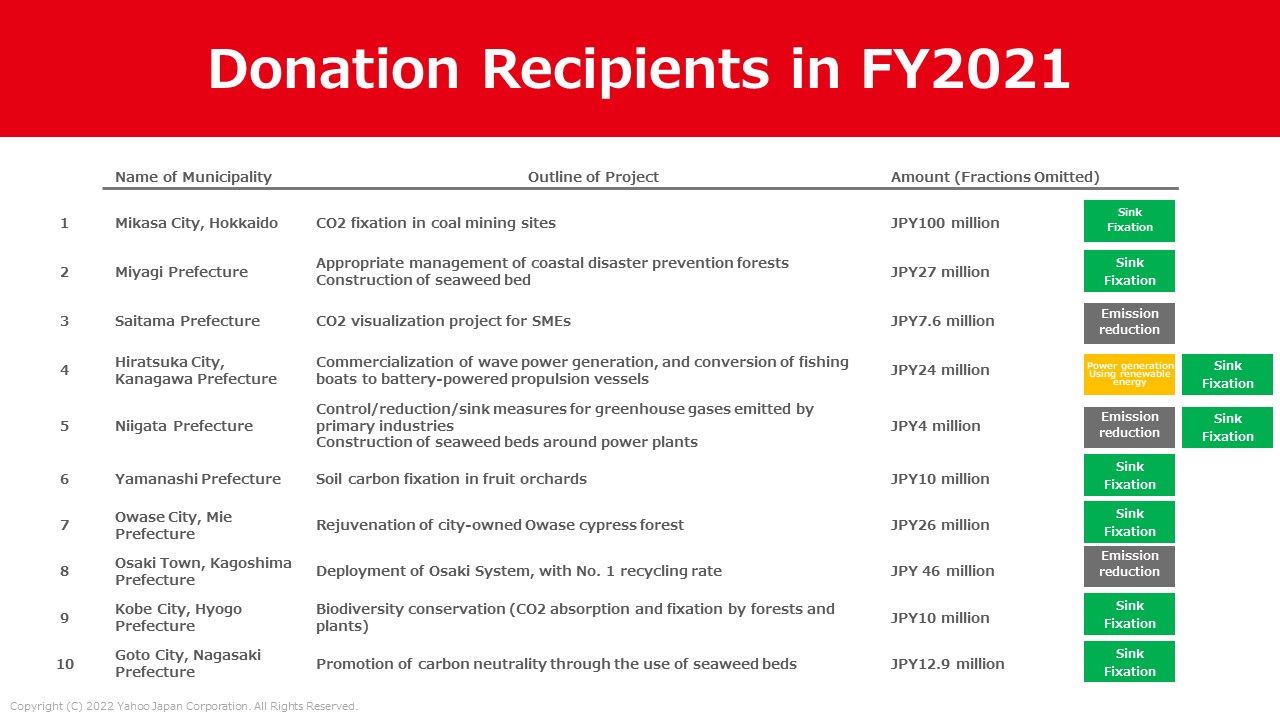
[Figure 2]:Recipients of donations through the Regional Carbon Neutrality Promotion Project; approximately JPY270 million yen donated in FY2021.
――Thank you, Kominami-san. Fuma-san, could you tell us what you expect from ZHD?
Fuma: The Regional Carbon Neutrality Project is a wonderful initiative that harnesses Yahoo Japan's existing network with local governments in a multitude of ways.
Furthermore, there is a remarkable increase in arenas where technology related intellectual property, which I believe ZHD has a lot of, can be utilized.
For example, as we have been discussing, besides measuring GHG emissions, transforming to low-carbon logistics is also an area in which the power of data management, including AI (artificial intelligence), can be effective. Efforts to reduce electricity consumption of IT servers through the introduction of AI are already underway.
I think that making use of the vast intellectual properties you have, would be a significant contribution to community and would also define areas of potential business growth.
Kominami: I agree. We are now putting a lot of work in AI and data management. GHG emissions can be reduced by improving efficiencies in the society, and there is even a possibility that we may develop new businesses out of GHG emissions reduction. I think being able to see where to direct your assets is particularly important.
――Yamagishi-san, what are your thoughts?
Yamagishi: In the future, introducing renewable energy alone will not be sufficient, and the quality of the initiatives will gain more importance. We hear increasingly about issues surrounding the development of mega solar and wind power generation, the incompatibility between national parks and geothermal power generation, and exclusion of biomass power generation from carbon neutrality standards, etc. With regard to non-fossil fuel certificates, although it is possible to trace whether or not the electricity comes from renewable energy sources, there is no way of knowing the exact background of its production.
I do not think ZHD should solve these issues alone, but I believe there are some contributions in the business field that can be made precisely because ZHD is an IT company.
Kominami: I believe this means that problem solving can lead to business. We would like to address issues on decarbonization both as a risk and opportunity.
Fuma: It is my desire that ZHD will develop a "critical thinking" towards itself. For instance, Microsoft has declared to be carbon negative by 2030, however, the company recognizes that most of the existing carbon credit schemes on the market do not meet their high standards and therefore cannot be used. For this reason, the company is proactively engaged in creating the proper credits and is also trying to lead the world. I hope that ZHD will develop a similar mindset.
――Is there anything that you would like to add regarding ASKUL's contribution to decarbonization, Kowada-san?
Kowada: As part of its decarbonization efforts, ASKUL is in the process of introducing EVs, but we are deliberately not switching our vehicles in large numbers all at once. If achieving 100% EV was our sole goal, we could do that by introducing 200 or so EVs. However, I believe that the changes we make should not result in the quality of services to drop for our customers.
Also, this is not just about delivery companies replacing their vehicles with EVs. Simultaneously, we must make sure that charging stations are in place. EVs require charging, so we must approach the society and its infrastructure.

Mitsubishi Motors' light commercial electric vehicle MINICAB MiEV (top left, bottom left, center, and bottom right) and Mitsubishi Fuso's electric light duty truck eCanter (top right) adopted by ASKUL
Currently, we are introducing EVs while verifying at the same time, how much can be loaded on the vehicles, their usability, cruising range, and charging time. Since there are very few options in terms of vehicles, we exchange opinions with the automotive companies and try out the distinct types of EVs, in order to bring about change in the world together.
Yamagishi: Questions raised by those who are trying to use EVs are actually very convincing. How to promote decarbonization in heavy freight shipping is a major global subject, and we notice some hesitation even in reports by the International Energy Agency. Power is necessary for shipping, and there is a difficult debate about whether EVs are really suitable, or whether after all, we must depend on fuel cell vehicles. I think it is particularly important to raise these kinds of questions and to open up discussions with our society.
――Questions raised by businesses and their expression of views can be a driving force in the world.
Fuma: Z Holdings Corporation's President and Representative Director, Co-CEO, Kentaro Kawabe is a member of the Japanese government's Council of New Form of Capitalism Realization. This gives ZHD a unique opportunity for advocacy, and I very much hope that the company will make recommendations on what direction the government should take.
Yamagishi: Carbon pricing is included as a Council report item, and I hope that ZHD will actively discuss this topic. More voices, and voices from the business operators, are needed for its realization, or the debate may fade away.
Kominami: It will be a very important job for ZHD to actively reach out and cooperate with the government. The Japanese government has made clear its commitment to carbon neutrality, so it is inevitable that costs are incurred according to GHG emissions in the medium- to long-term. We are shifting to renewable energy and working on decarbonization in anticipation of this. We would also like to consider building a framework that will contribute to the introduction of a carbon pricing system.
Climate change actions taking biodiversity into account
――So far, we have talked about how ZHD is addressing climate change. Would anyone like to add any comments or questions?
Yamagishi: I would like companies to also pay attention to "nature positive(*9)." In COP 15 (fifteenth meeting of the Conference of the Parties to the Convention on Biological Diversity) scheduled in summer 2022 in Kunming, China, a new international framework is expected to be adopted. In the face of a global biodiversity crisis, it aims to ensure that biodiversity is put on a path to recovery by 2030.
Climate change and biodiversity are becoming the two major areas of global environmental goals.
Efforts that focus solely on the carbon side of forests and carbon offset, are no longer highly evaluated. If your project does not help the recovery of the native ecosystem, it may be labelled "greenwashing." If we pay attention only to carbon, the best solution would be to plant trees that grow fast, but that would undermine the ecosystem.
If I may go back to the donation recipients of the Regional Carbon Neutrality Promotion Project you have shown us earlier, some of the projects seemed to bridge climate change and biodiversity.
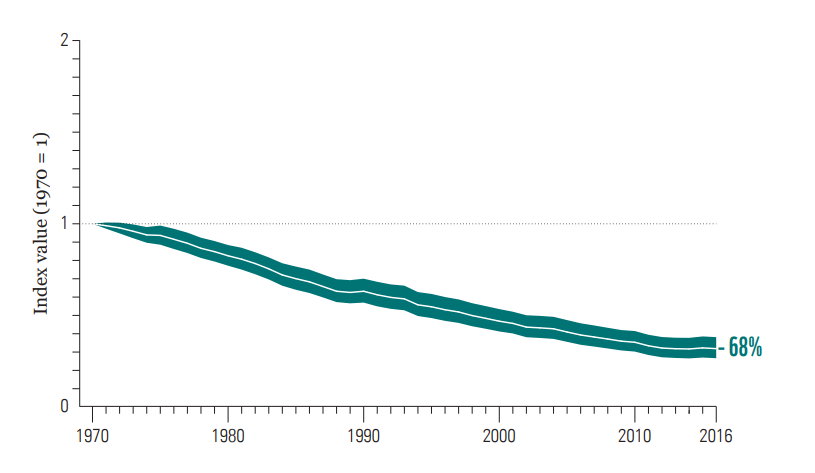
[Figure 3]:Global Living Planet Index. About 70% of the globe's biodiversity has been lost. (Source: WWF Living Planet Report 2020)
Fuma: Although at first, it may seem there are no connections between the two, IT companies are in fact not totally unrelated to biodiversity. Biodiversity is generally said to be highly relevant in food, apparel, and other businesses that are closely related to agricultural crops or minerals.
Food and dining services are obviously a part of ZHD's wider businesses, and metallic minerals are used in the computers and servers of the company. So, if we bring Scope 3 into the picture, ZHD is closely connected to biodiversity.
Kominami: I agree. When you think of the paper, IT equipment, and office furniture and fixtures that are used in our businesses, you realize that our work is founded upon many biological resources. The first thing we can do is to have a full grasp of the value chain of our procurement and disposal processes. It is important to scrutinize these areas to ensure that the way we conduct our work and operate businesses is sustainable, for example, by checking that the materials we use are certified by the FSC, or that circulation is properly functioning, such as in material recycling.
While promoting activities that directly contribute to the conservation of biodiversity is a challenge, we can approach the issue more effectively by linking it with our climate change measures, such as forest conservation and the creation of "blue carbon," which is a reforestation of the oceans.
――In order to promote both climate change and biodiversity initiatives across the company, I believe it is also vital to raise literacy among the employees. Thank you all for your valuable input today.
Notes
*1 SBTs (Science Based Targets): The Science Based Targets initiative (SBTi), which manages SBTs, encourages businesses to set science-based emissions reduction targets that are in line with the Paris Agreement, to limit global warming to 1.5°C above pre-industrial levels.
*2 Carbon negative: Reducing even more GHGs than you emit.
*3 Corporate Power Purchase Agreement (PPA): A long-term agreement that enables a corporation (electricity user) to purchase its electricity directly from a specific power generator.
*4 Scope 3: Indirect GHG emissions from activities of a company that occur from sources not owned or controlled by the company. This includes, among others, emissions occurring from the procurement of raw materials/products, delivery, use of products, and disposal process.
*5 RE100: A global initiative to promote 100% renewable energy for electricity used in corporate activities.
*6 Renewable energy certificate market: Launched in November 2021 as a new market that enables companies (consumers) to purchase non-fossil fuel certificates (FIT certificates).
*7 EV100: A global initiative which aims to realize 100% zero emissions from transport used in business operations.
*8 Enterprise hometown tax donation program: A tax program in Japan that allows corporations to receive a tax credit for corporate-related taxes (up to approximately 90%) when they donate to state-certified regional revitalization projects conducted by local governments.
*9 Nature positive: Putting biodiversity and nature first.
Related Links
- Realizing a Low-Carbon Society
- Preserving Natural Capital
-
Z Holdings Corporation Announces "2030 Carbon Neutrality Declaration(Press release)
- Regional Carbon Neutrality Promotion Project (Japanese only)
-
ASKUL, CUBE-LINX, and Hino Motors Begin Today the Joint Demonstration Test Using Light Duty BEV Trucks to Find Optimal Electric Vehicle Operation Management (Press release | Japanese only)